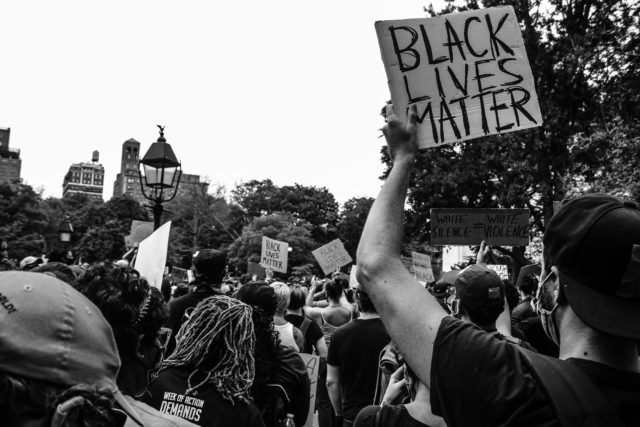Protests were a defining feature of 2020. In the wake of the murders of George Floyd, Breonna Taylor, and the many other black people killed by police, more people took to the streets than ever before, making Black Lives Matter the largest movement in US history. Despite protests being overwhelmingly peaceful, law enforcement and federal agents teargassed protesters in over 100 cities, blinded and maimed protesters, and kidnapped protesters in Portland.
As organizations and leaders on the ground responded by leading know your rights and de-escalation trainings, and drawing attention to the disproportionate policing against protesters of color, Piper expanded its grantmaking to support black led organizations who were leading efforts to keep their communities safe while protesting for racial justice including the BlackOUT Collective, BYP100 and the Movement for Black Lives.

Piper also responded in 2020 to continued efforts to criminalize the right to protest at the state level. Despite COVID stalling or canceling many legislative sessions, legislators still managed to introduce 27 anti-protest bills and pass 6 into law. Piper Fund and Piper Action Fund grantees successfully defended the right to protest in Minnesota, Louisiana, and Alabama. Grantees in Kentucky were able to work with legislators to remove the most harmful provisions of the anti-protest bill and grantees in South Dakota and Ohio put in valiant efforts to defend the right to protest in their states.
Over the course of 2020, Piper and the Protect Dissent Network monitored emerging threats to be able to provide support to state organizations. The network prepared for various scenarios during the post-election period and compiled key resources on de-escalation trainings, know your rights, and disseminated resources with state and local organizers. Piper also funded public opinion polling, a media audit, and the creation of a messaging guide focused on protecting the right to protest during the post-election period. These findings were disseminated to over 300 organizations, and rapid response infrastructure was established for the period as well.
When a violent mob attacked the Capitol on January 6, the network was able to quickly mobilize this infrastructure to respond. Within 24 hours, the Protect Dissent Network held an emergency call to analyze the implications of the attack on the right to protest and determine key messages. Piper’s consultant reactivated the rapid response communication’s list, sending daily clips highlighting the disparate police response to the racial justice protests and the insurrection at the Capitol. The network disseminated key messages, pitched spokespeople, and authored and published many letters to the editor to ensure this attack wouldn’t encourage greater crackdowns on peaceful protest.
As we look to 2021, we know that threats to the right to protest will continue, particularly those targeted toward protests for environmental justice and racial justice. Since the beginning of this year, lawmakers have already introduced over 40 anti-protest bills in 20 states, including a bill in Florida where protesters who block traffic could face up to 15 years in prison. A Missouri bill would expand the state’s ‘Stand Your Ground’ law and would allow someone to use deadly force against someone who is participating in an ‘unlawful assembly’ and attempts to enter private property, increasing the risk of violence directed toward protesters. Protecting freedom of assembly will continue to require a multifaceted response, from grantmaking, to convening, to messaging and narrative.
However, one thing we learned from 2020 is that when communities work together, we can build resilient movements, defend democracy, and uphold the right to protest. We are deeply grateful for the partnership with our grantees, donors, and partner organizations and look forward to working together in 2021.